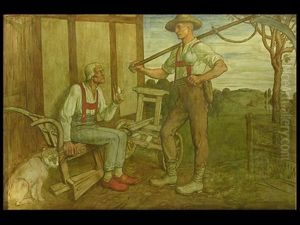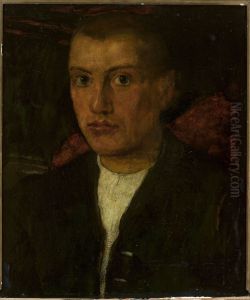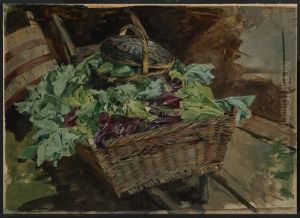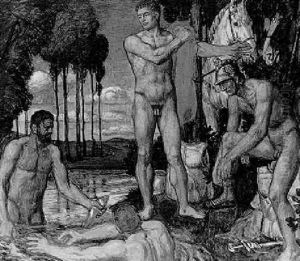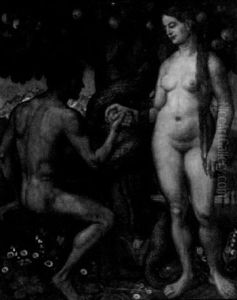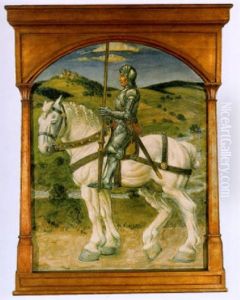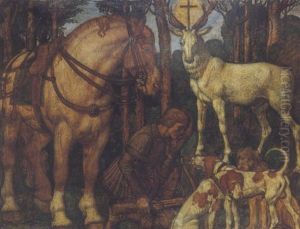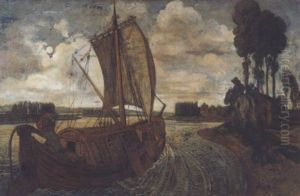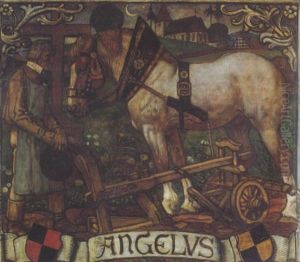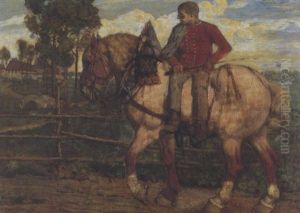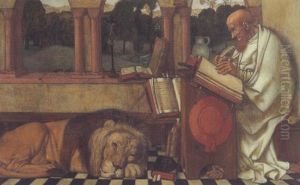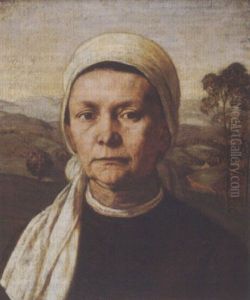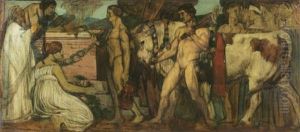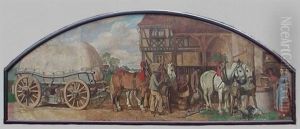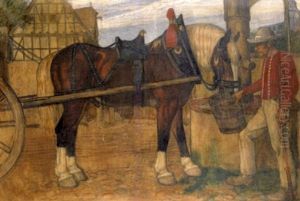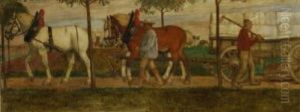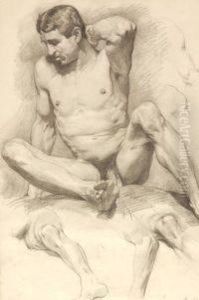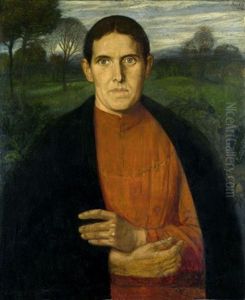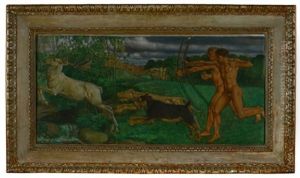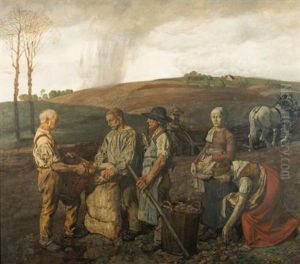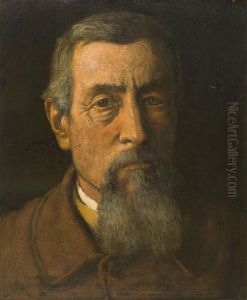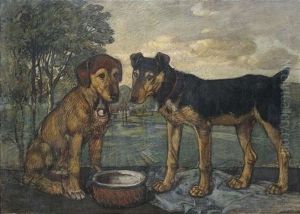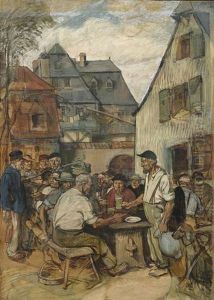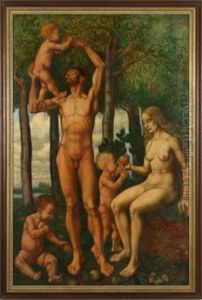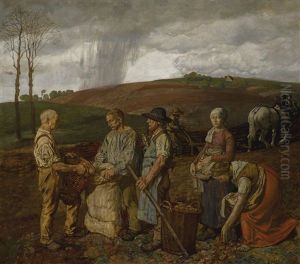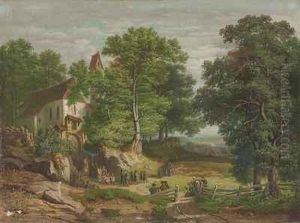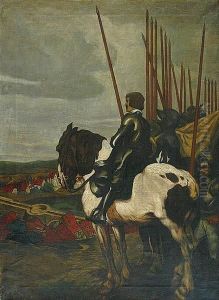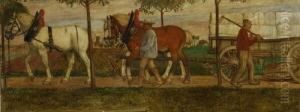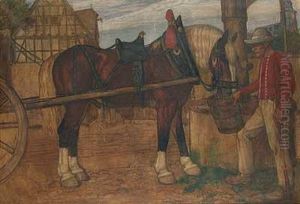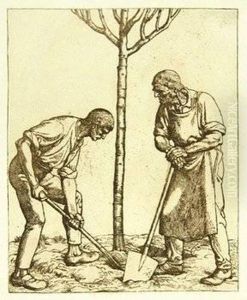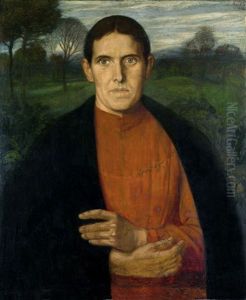Fritz Boehle Paintings
Fritz Boehle was a German artist born on February 18, 1873, in Mannheim, Germany. Despite his relatively short life, as he died on April 22, 1916, in Munich, Boehle left a distinct mark on the art world with his expressive works. He is primarily known for his illustrations, graphic works, and paintings, which often reflected themes of human struggle and the social issues of his time.
Boehle's artistic journey began at the Karlsruhe Academy, where he studied under the tutelage of renowned history painter, Carlos Grethe. He later continued his education at the Academy of Fine Arts Munich, which was a hub for emerging artists and new ideas during the late 19th and early 20th centuries. Boehle was deeply influenced by the Symbolist movement and the Art Nouveau style that swept across Europe during this period.
His works often showcased a fascination with the human condition, and he had a penchant for depicting the struggles of the working class and the impoverished. Boehle's approach was characterized by a keen attention to detail, a strong sense of empathy, and a desire to portray the emotional depth of his subjects. His illustrations were frequently published in magazines and periodicals, which helped to disseminate his work to a broader audience.
Apart from his illustrations, Boehle's oeuvre includes a portfolio of etchings and lithographs. These pieces are marked by their technical skill and the emotional intensity they convey. During his career, he participated in several exhibitions and was recognized by his peers and critics for his contributions to German art. His work is part of several museum collections, and although he did not live to see the full impact of his work, his legacy has been appreciated in posthumous exhibitions and research on German art of his era.
Tragically, Fritz Boehle's life was cut short by illness at the age of 43. The First World War was also raging during this period, casting a shadow over Europe and inevitably affecting the arts community. Nevertheless, Boehle's body of work continues to be studied and admired for its poignant depiction of early 20th-century life and the human experience.
